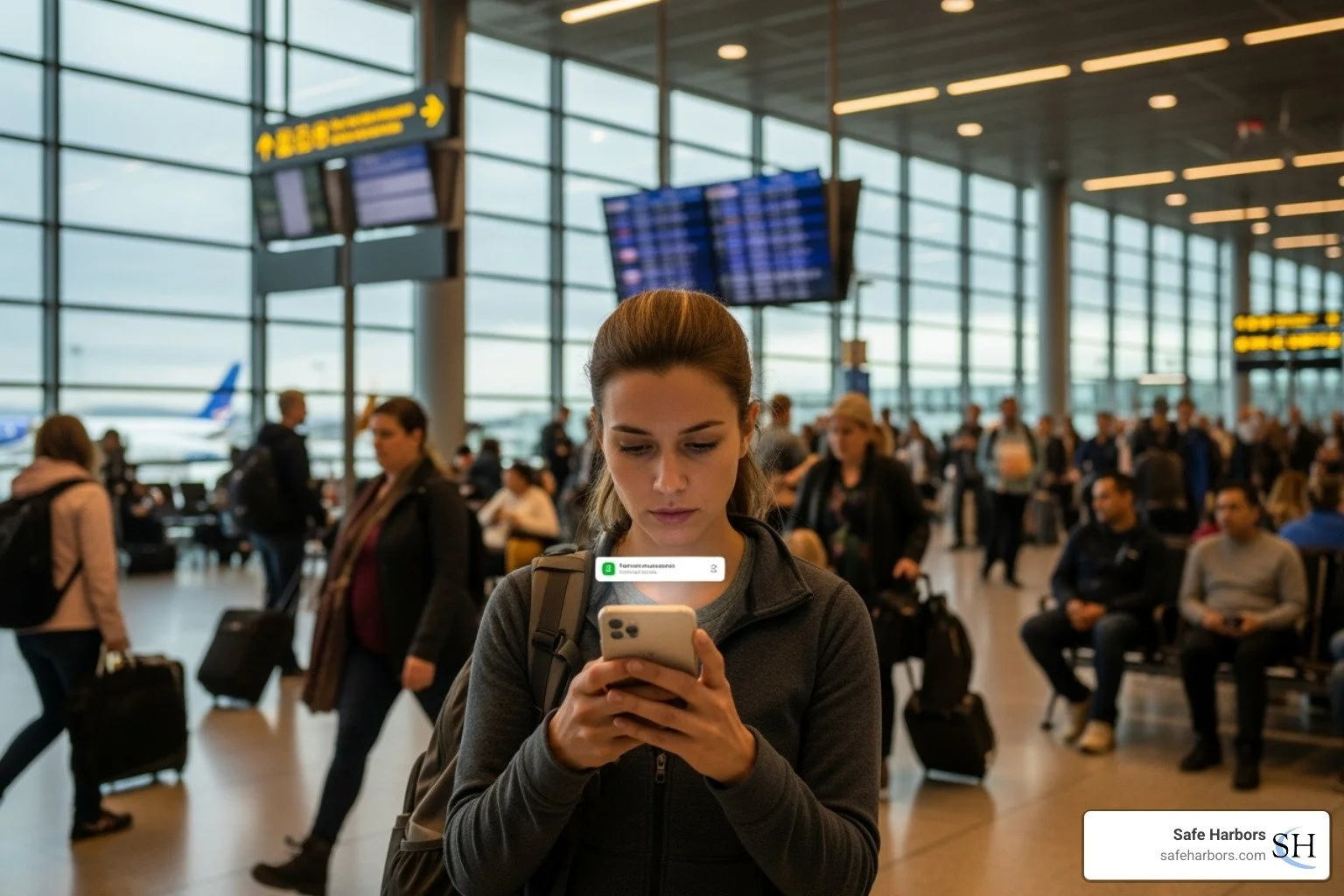If a company doesn't use a travel management company or has a proper system in place, managing travel spend becomes a challenge—especially when employees are booking their own travel. Without the right guidance or experience, the company could miss out on significant saving opportunities.
Corporate travel costs are determined by the individual choices made by its employees, from selecting airlines and hotels to the time it takes to book flights. Without clear policy guidelines, there's a higher likelihood of less cost-conscious decisions.
Here are 15 factors that drive up travel costs:
1. The Lack of Visibility
It's easy to believe that all employees are buying with your company's best interests in mind, but that's not always the case. Without the ability to see more specific data on travel spending, it's challenging to stay on top of the total spend. If employees have the freedom to book however they choose, having visibility into what and when they are making purchases can present opportunities for immediate oversight, correction, and education on how to make better choices.
2. Booking, Change, & Cancellation Fees
Using online travel agencies like Expedia, Travelocity, etc. will often add a charge of their own on top of the airline's fee if a flight is canceled or a change is requested. This becomes pricey because many airlines already have fees ranging from $75 to $200. It can get tricky when employees don't know how to look for those hidden fees, but with strategic planning and booking, you can avoid some of them.
3. Personal Preference—Not Price
When employees book their own trips and use sites they prefer, it's a challenge to manage their spend while also trying to keep up with employee preferences, changing itineraries, and their perceptions of reasonable costs. If employees are accustomed to making their own travel arrangements with little or no oversight, they typically won't choose the least expensive options.
4. Canceling or Changing Non-Refundable Airfares
If an employee has booked a nonrefundable ticket at least seven days ahead of the flight, they can modify the reservation within 24 hours of booking—without paying a cancellation fee. If they forget to change or cancel this reservation, there are fees of up to $200 on the large carriers for a domestic flight and up to $450 for international flights.
5. Last-Minute Flights
When employees book flights right before a trip, prices are significantly higher. Choices become limited and airline fares can increase quickly. If they book the day before takeoff, they will usually pay the highest rate.
6. Credit Expiration
Employees don't always keep track of their accumulated credits and unfortunately, they typically expire within a year. When a ticket is exchanged, refunded or canceled, it's the traveler's responsibility to use airline credits before they expire. Credit for canceled tickets should be used as soon as possible to avoid the expiration date. Without any quality control checks, employees will tend to forget about these, and only discover them after they've expired.
7. A Hotel's "Rack Rate"
The rack rate in a hotel is the maximum amount they usually charge for a room when the demand for rooms is highest. Lodging prices generally increase because of seasonality and last-minute bookings. When demand starts to increase, and supply (room availability) decreases, only higher rates are available.
8. “No-Show" Charges for Hotels
If an employee forgets to cancel a hotel reservation or shows up later than planned, hotels can add a "No-Show" fee to the bill. Hotels will generally charge a first-night cancellation fee, but when it's a hotel that can't easily achieve full occupancy, they may charge the full value of the entire pre-booked stay for subsequent nights.
9. Comparing Prices on Different Booking Sites
Online travel agencies' prices will vary because of fees and other costs. This means that the exact same hotel room might be priced differently on another agency's site. Unfortunately, many employees don't have the time to hunt for the best deal and will simply go with the first available site.
10. "Perks" Directly From Suppliers
Vendors and suppliers will now market straight to your employees, offering upgrades and discounts to purchase directly from them. Remember that they are acting on behalf of the traveler, not your company. Although letting your travelers have some of the perks can be positive, those same perks could be even greater if they were to book as a company.
11. Ancillary Fees
Parking and baggage fees are two of the most common airline surcharges. Now, preferred seating, WiFi, meals, drinks, snacks, early check-in, etc., have become added to the "for purchase" offerings. These can all have a significant impact on your travel budget when bought. When these fees aren't thoroughly tracked and assessed, they're tough to control.
12. Luxury Bookings
Employees will splurge occasionally and stay in higher-priced hotels. These hotels don't usually offer any added-value extras like free breakfast and will charge for business travel basics like Wi-Fi. With $350 and $450 a night rooms in some larger cities, this adds up.
Travelers will also upgrade their airline seats because they assume the company won't mind if they sometimes fly business or first-class instead. If there are no written guidelines limiting what your employees can spend, this can get out of control quickly.
13. Expensing Food Bills
If employees don't have a spending limit, you may find that their meals are quite lavish or excessive. With high-end cocktails, expensive bottles of wine, and extravagant meals, the bill can quickly add up—once you factor the tax and tip. Without meal limits and daily maximums, it's difficult to find savings. Even when there are policy guidelines in place, employees will still tend to spend at the highest limit.
14. Renting Cars
Although renting the cheapest cars, regardless of vendor, may seem like a good idea, the reality is that approximately 40% of car rental expenses are costs other than the daily rate. Many companies will tack on surcharges, refueling costs, energy fees, or insurance. Advanced planning in securing car rentals can help reduce costs—sometimes significantly.
15. Incomplete Expense Reports
When business travel and expenses aren't integrated, it forces employees to store receipts and documents to fill in a report manually upon their return. They may be more inclined to rush through this and sometimes won't fill in all the costs. This is especially true when they feel as if some of the items won't be approved.
How a TMC Can Help You Save
TMCs, or travel management companies, are experts in the business of professional travel management. They provide advice, education and overall travel strategies that are tailored specifically for your business. By leveraging the latest in travel technology, a TMC makes it easier to manage travel at every level—from planning, to pre-trip approval, to bookings, and to expense management. They will explore every cost saving opportunity and work closely with you to improve your process and booking efficiencies.
One cost reduction strategy involves consolidating how your employees make travel arrangements. It will help reduce spending while optimizing value, safety, and efficiency at the same time. A TMC will also help you increase visibility to monitor costs so you can better understand and control them. When all of the data is centralized through one single source, you will have a complete view of travel spend and a closer look at your employees' travel activity—which is key to improving your long-term travel savings.





